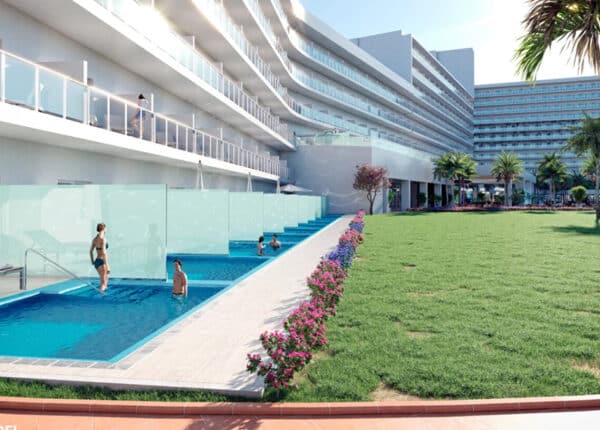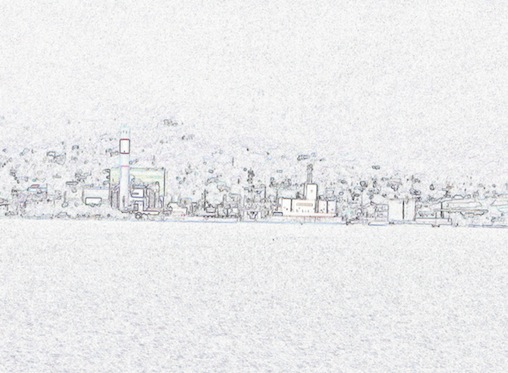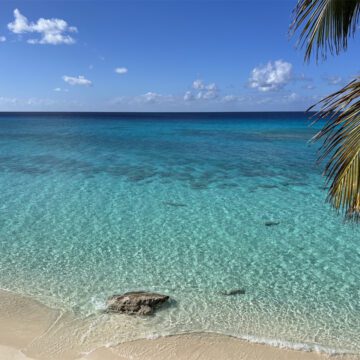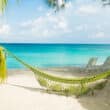By Paul Hay
CJ Contributor
IN MY Op-Ed, “The Logistics Hub Project and Jamaica’s Development,” I indicated that Jamaica’s Logistics Hub initiative intends to make use of the island’s strategic geographic location to attract larger ships that will be able to ply the Panama Canal from 2015 onwards.
No doubt, there are skeptics that question Jamaica’s ambition to build the fourth global transshipment logistics hub. However, energy use in Jamaica’s shipping/aviation sector has increased 268 percent in the four years prior to the global recession in 2008. This fell by 59 percent in the following four years, but will no doubt rise again as the global economy recovers.
However, reports indicate that Jamaica’s larger neighbours to the north, Cuba and the Dominican Republic, are also preparing for these larger ships. So, what competitive advantage does Jamaica have by comparison? Michael Porter of the Institute of Strategy and Competitiveness, Harvard Business School, states that the competitive advantage of a nation accrues from it distinguishing itself from competing nations and developing on differences in history, infrastructure, institutions, culture and factors involved in the ways people live and do business. Here, we will look at history as a source of Jamaica’s strategic advantage.
Most accounts of English activity in the Caribbean between the 16th and 17th centuries mention privateers and pirates. In referring to the privateering trade, Sir Thomas Modyford – Governor of Jamaica – is recorded as saying “More frugall, more prudentiall, more hopeful in laying a good foundation … for the great increase of His Majesties dominions in these parts.”
This statement inspired an essay by Nuala Zahedieh entitled “A Frugal, Prudential, and Hopeful Trade: Privateering in Jamaica, 1655 – 1689”, reprinted in the book West Indian Business History: Enterprise and Entrepreneurship.
Rather than looking at the “glamour and excitement” of privateering, Zahedieh emphasizes the business aspects of the trade. He states that: “Given Jamaica’s strategic location … and the island’s capture, it is not surprising that the first settlers, many from the conquering army, enthusiastically took to plunder.”
The primary target was the Spanish Empire “… and the prominence of privateering in early English Jamaica derived first and foremost from the island’s geographic location in the heart of the Spanish Indies convenient for the major ports and straddling the principal trade routes.”
According to the website of the Jamaica National Heritage Trust, Port Royal was first used by Tainos as a fishing camp when only a sand spit. The Spanish used it for cleaning, refitting and caulking their ships.
But the English realized its “strategic importance” and fortified it. Records of business life in Port Royal during the 1660s clearly indicate the importance of privateering. In fact, the privateers “spent much of their money in Port Royal, which had the most convenient harbour, best supplies and best market for prize goods in the Caribbean.”
The modus operandi of the privateers was to commandeer ships with cargo with minimal confrontation.
But land expeditions were more profitable. Between 1655 to 1671, privateers sacked 18 cities, 4 towns and over 35 villages. These expeditions are testimony to the island’s strategic geographic location. In fact, records indicate that the very nations mentioned earlier were targets of such expeditions. Christopher Myngs raided Cuba in 1662; smaller towns in Hispaniola and Cuba were repeatedly plundered; and, Sir Henry Morgan captured Panama in 1671.
In the 1680s, privateers even crossed Panama’s isthmus to the Pacific Ocean, and “caused havoc up and down” its coast.
“Whilst the returns to those serving aboard the privateers was often relatively paltry, men in the port made great gains. Not only investors and creditors benefitted. The influx of men with money were so great that repercussions rippled right through the Port Royal economy.”
In 1668, Sir Modyford explained that the exploits of the privateers created “excellent opportunities” to any with money in Port Royal: opportunities for profit far greater than existed in England at that time. “We often … double nay treble our money without any hazard.”
Port Royal was destroyed by an earthquake in 1692, by which time it had become an important economic centre. In the following century, the merchants moved across the harbour to settle in Kingston, the present capital of Jamaica.
Though Port Royal would again become a famed British naval station, today it has reverted to a quiet fishing village overlooking the bustling port of Kingston. If history were to repeat itself, could the port of Kingston lay “a good foundation … for great increase” for Jamaica?
Could Kingston become that important economic centre Port Royal had become? On the face of it, the sad response is no. But, upon closer inspection Kingston, probably by serendipity, seems to be preparing for such an eventuality.
According to the article “Hylton to Press Ahead With Offshore Centre”, appearing in the Gleaner dated 17 February 2012, Don Wehby – then Minister without portfolio in Jamaica’s Ministry of Finance – “identified the Kingston Waterfront as the intended base of the International Financial Services Centre”.
An act was passed in February 2011 to create this new statutory body; the board has been appointed and is presently serving a two year term, ending on Feb. 26, 2014.
In addition, the Planning Institute of Jamaica [PIOJ] has published a document titled “A Growth-Inducement Strategy for Jamaica in the Short and Medium Term”, dated December 2011. It lists three development projects planned for Kingston: Downtown Kingston Redevelopment, West Kingston Commercial Lifestyles Centre, and the logistics infrastructure. Commenting on the “Kingston Lifestyles’ market brand”, PIOJ states that it “would be based on a strategic clustering of the economic, cultural, historical, social and geographical assets, and business opportunities, that competitively advantages downtown Kingston as a commercial zone.”
It would therefore seem that, if these projects proceed as planned, the only question that needs be asked is if history will indeed repeat itself.
Paul Hay is the founder and manager of Paul Hay Capital Projects.







